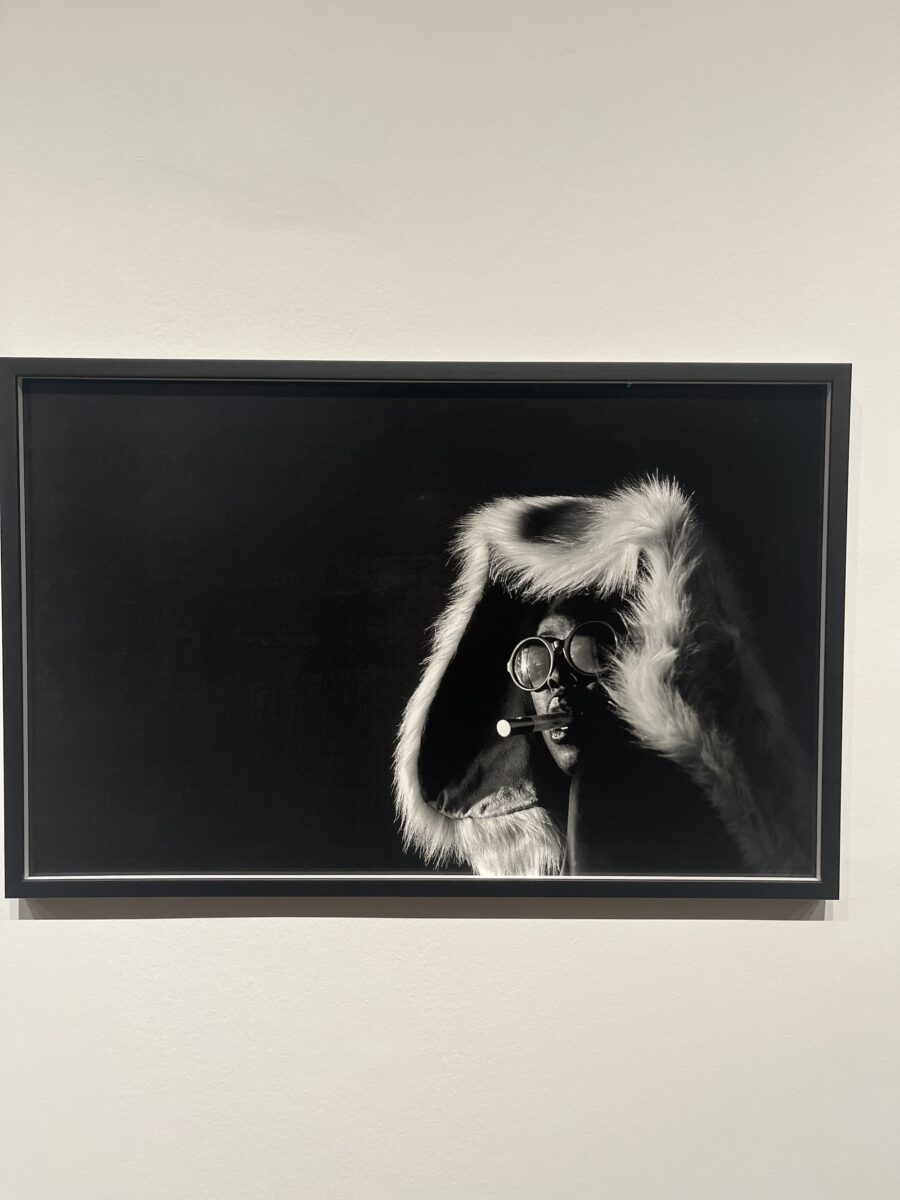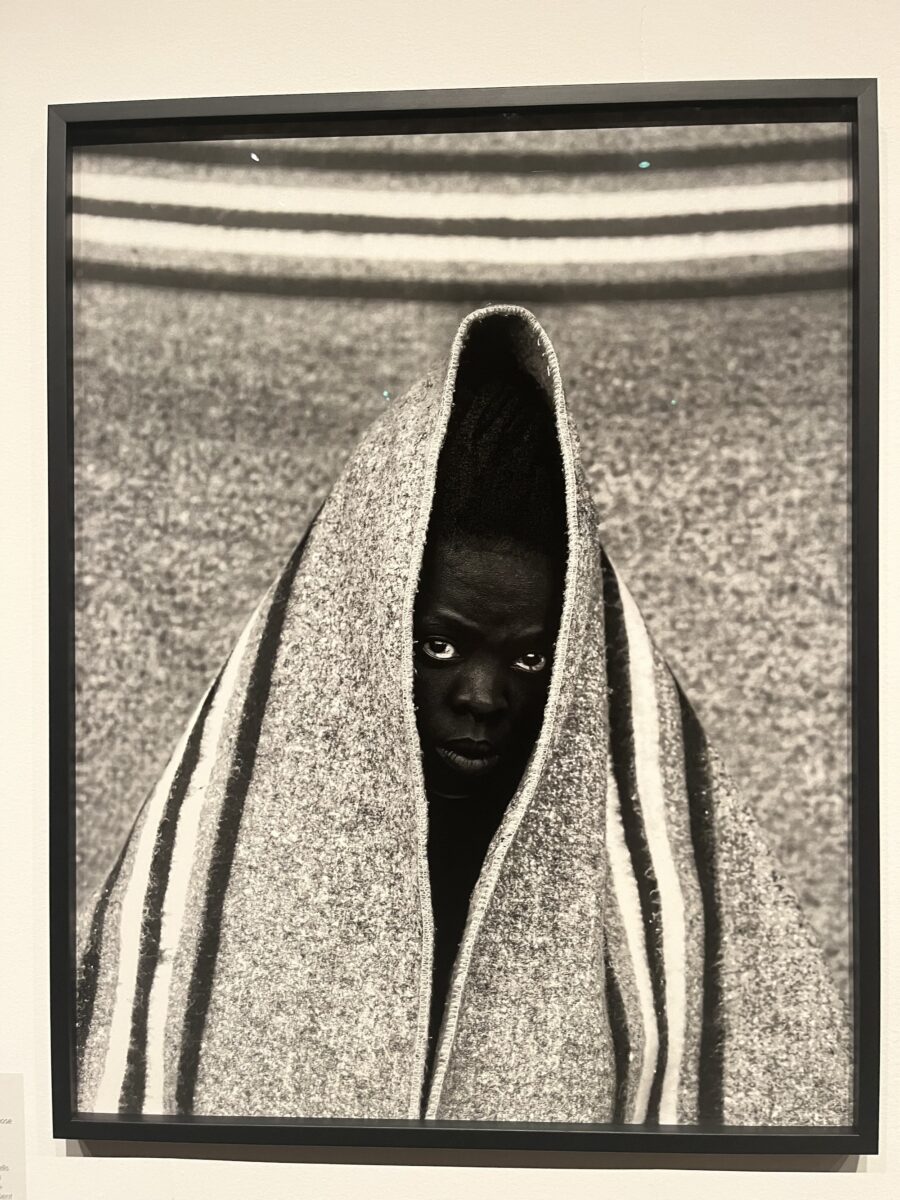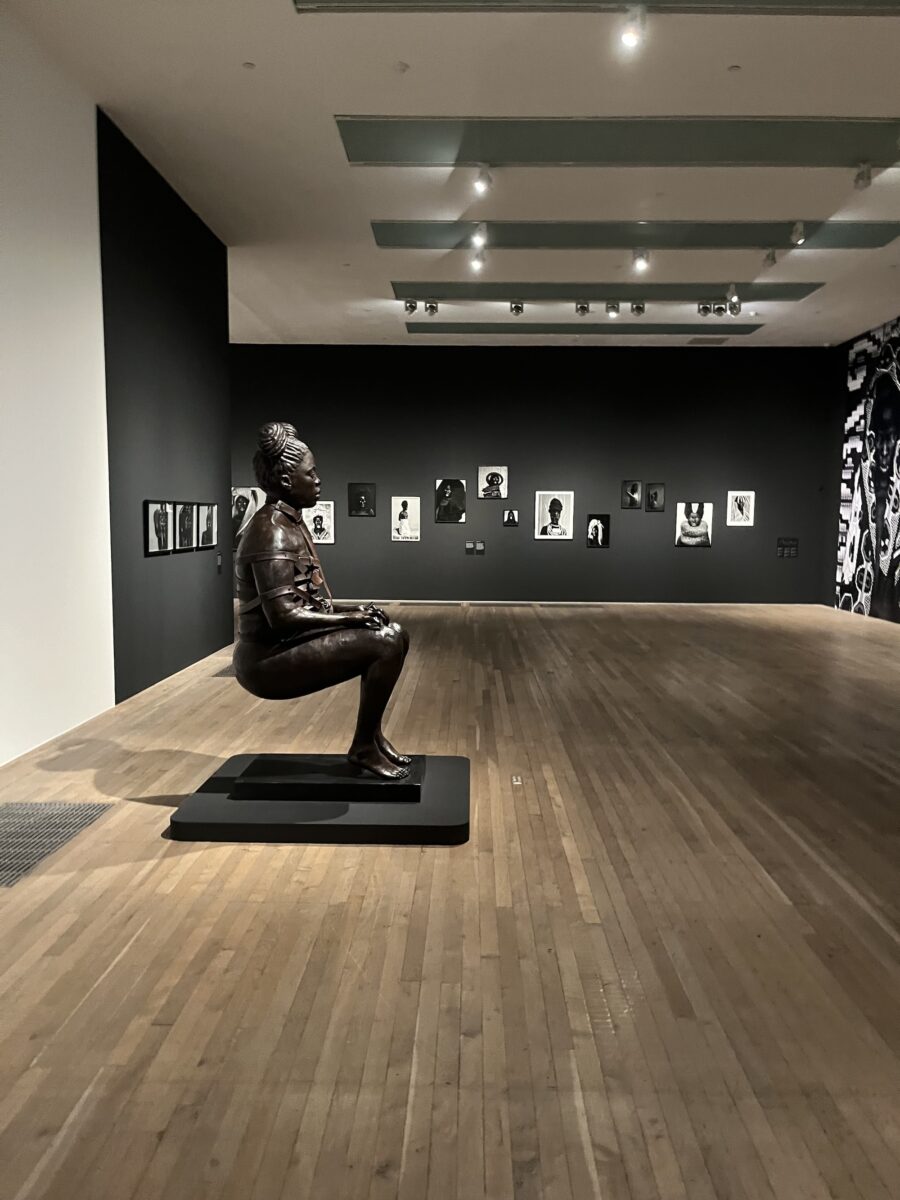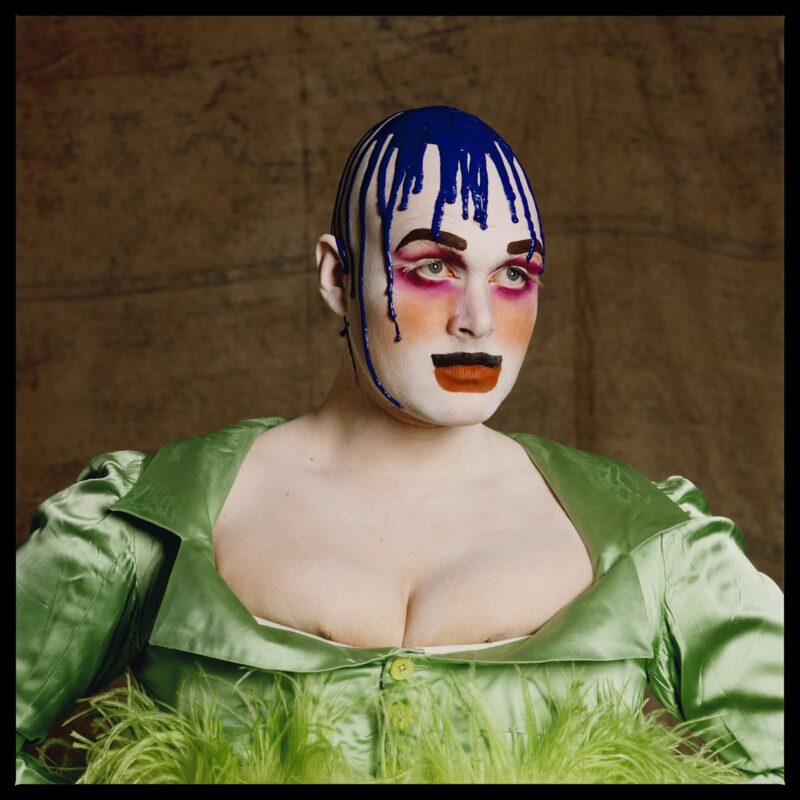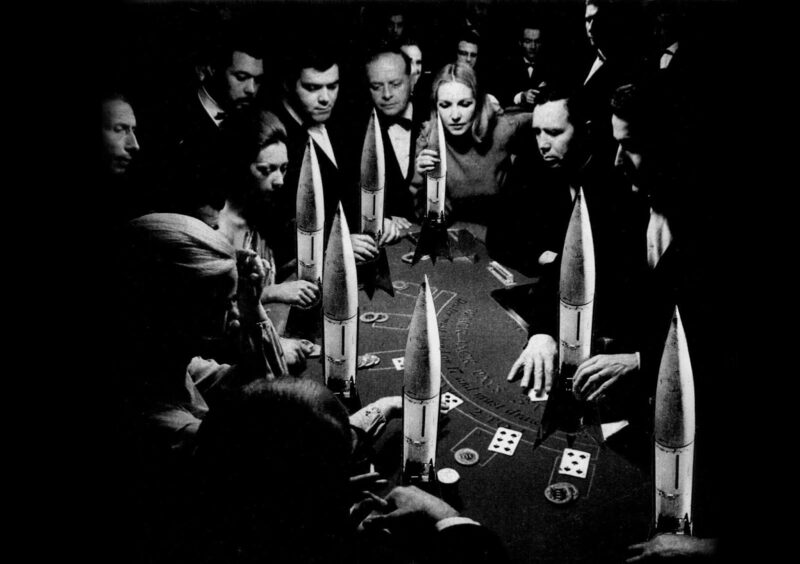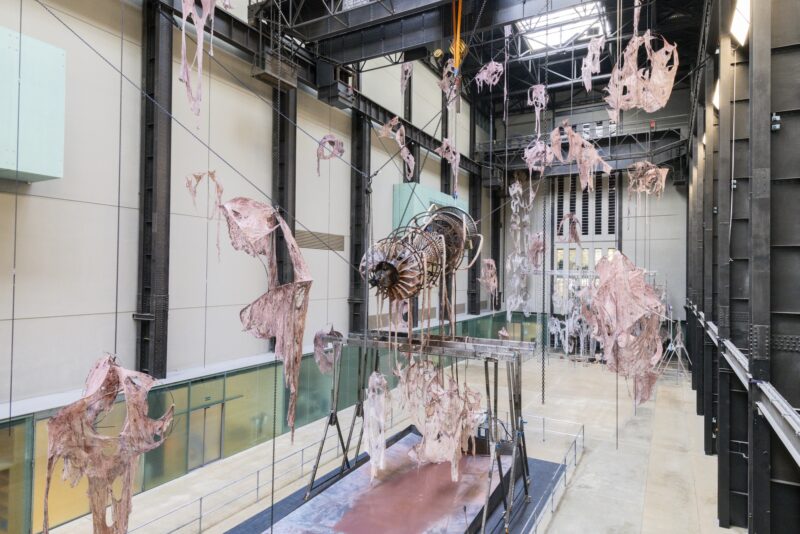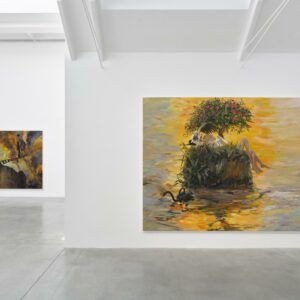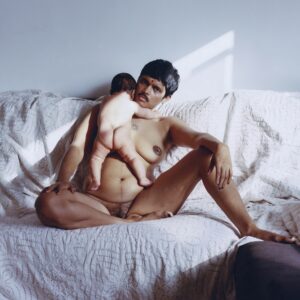This week the acclaimed exhibition of visual activist Zanele Muholi (b.1972) returns to Tate Modern a must-see exhibition.
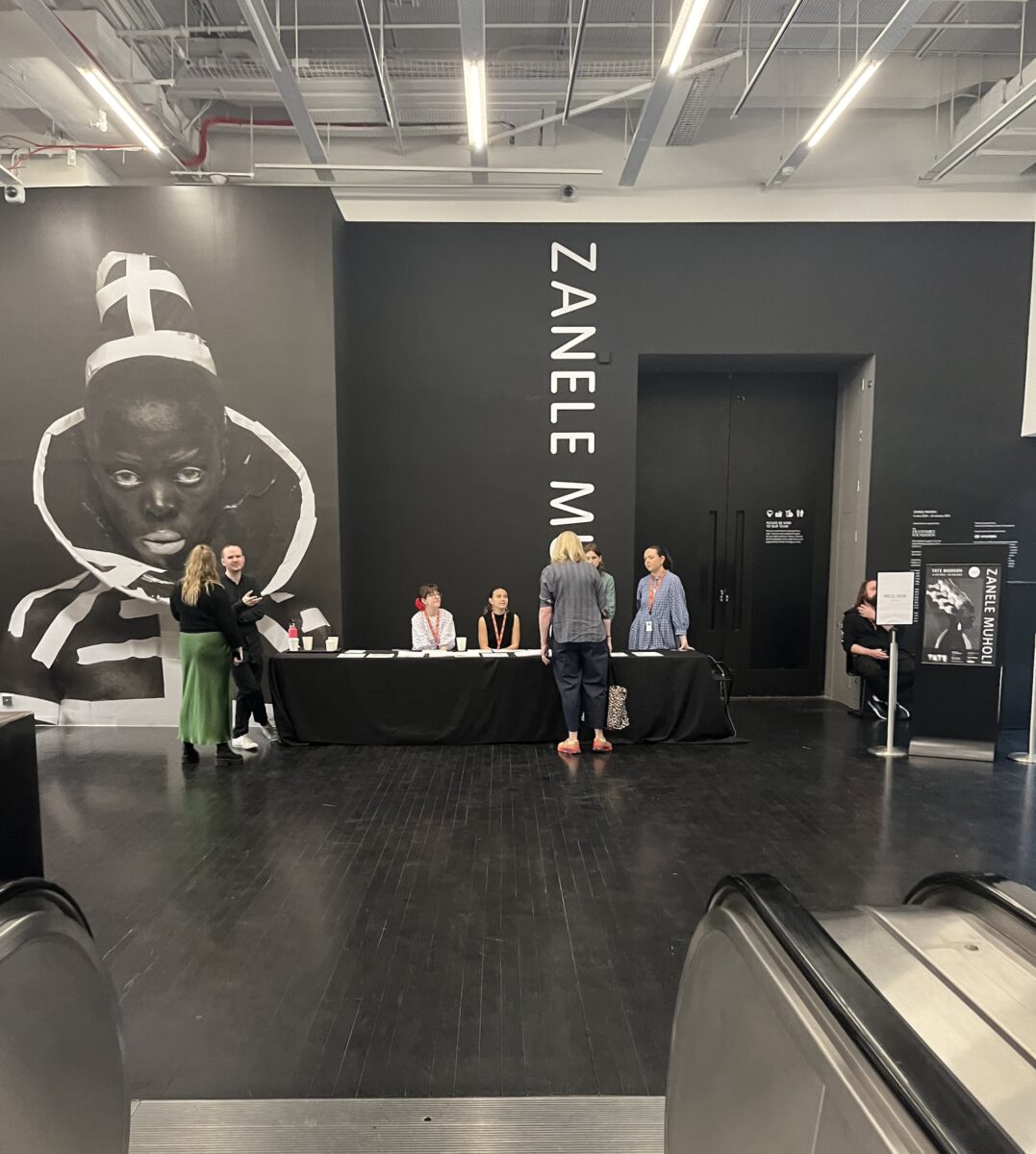
Muholi came to prominence in the early 2000s with photographs that told the stories of Black lesbian, gay, bisexual, trans, queer and intersex lives in South Africa. Over 300 photographs are brought together to present the breadth of Muholi’s career to date, from their very first body of work to their latest and on-going series. These images challenge dominant ideologies and present the participants in their photographs as empowered individuals superbly existing in the face of prejudice, intolerance and often violence.
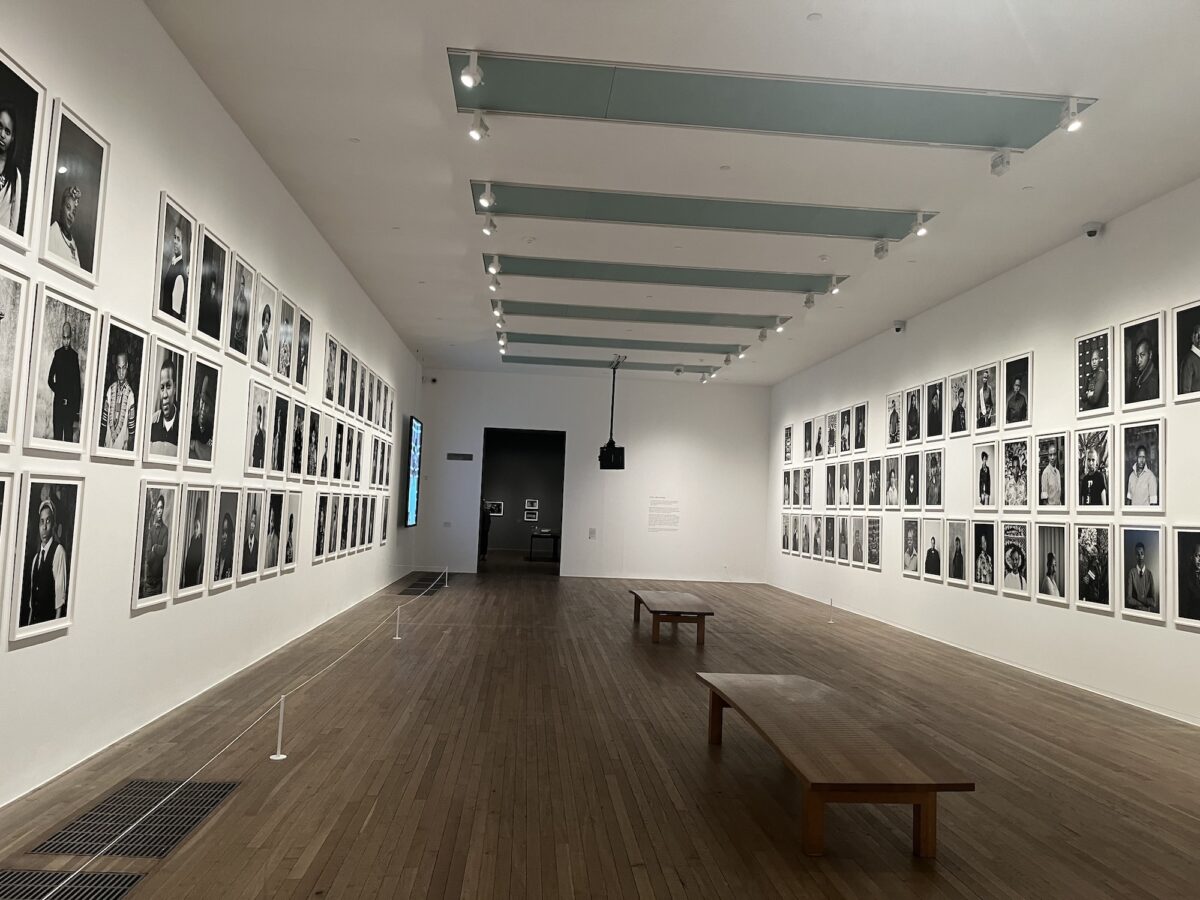
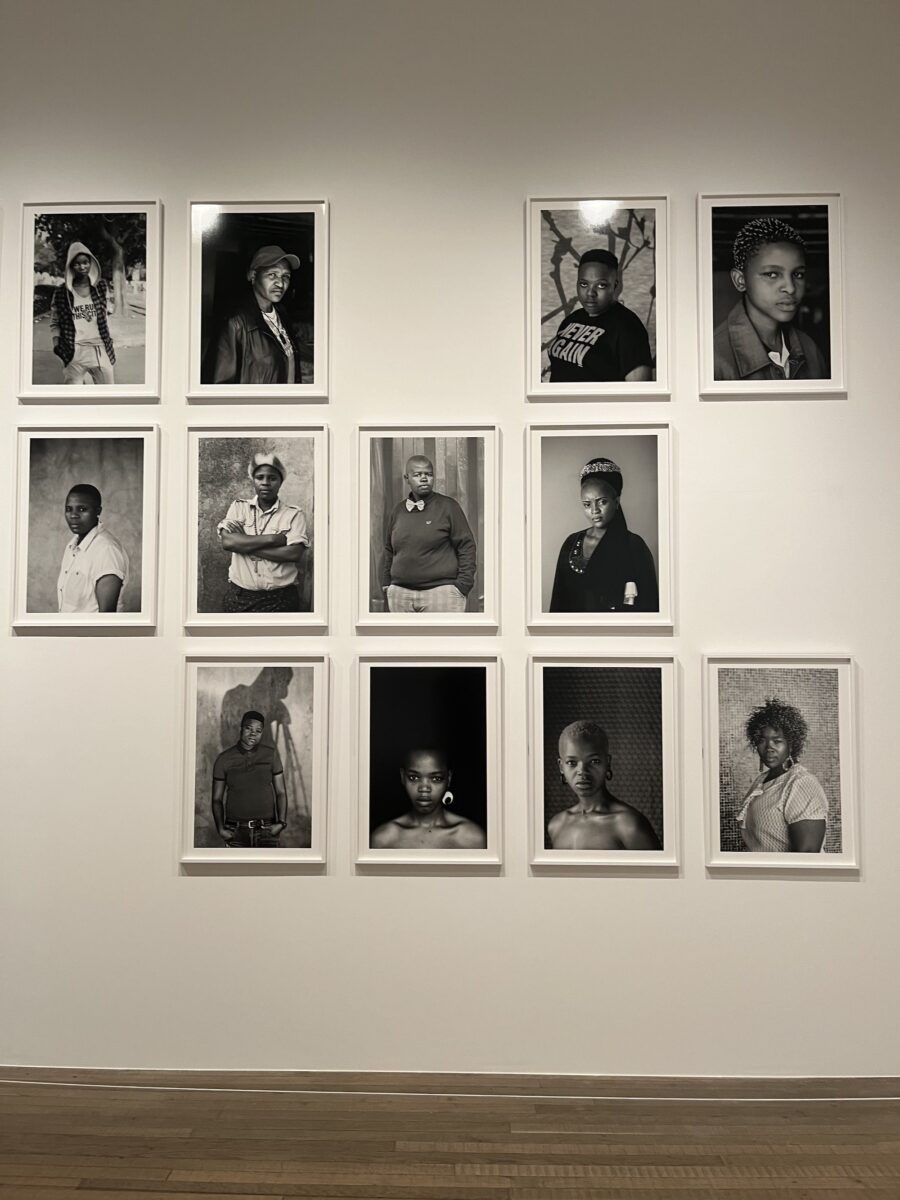
This exhibition – the first major UK survey of the artist’s work – was originally opened at Tate Modern in 2020 but was cut short by the national lockdown. You now have the opportunity to see a revised and expanded version of the exhibition, following a highly successful and record-breaking European tour.
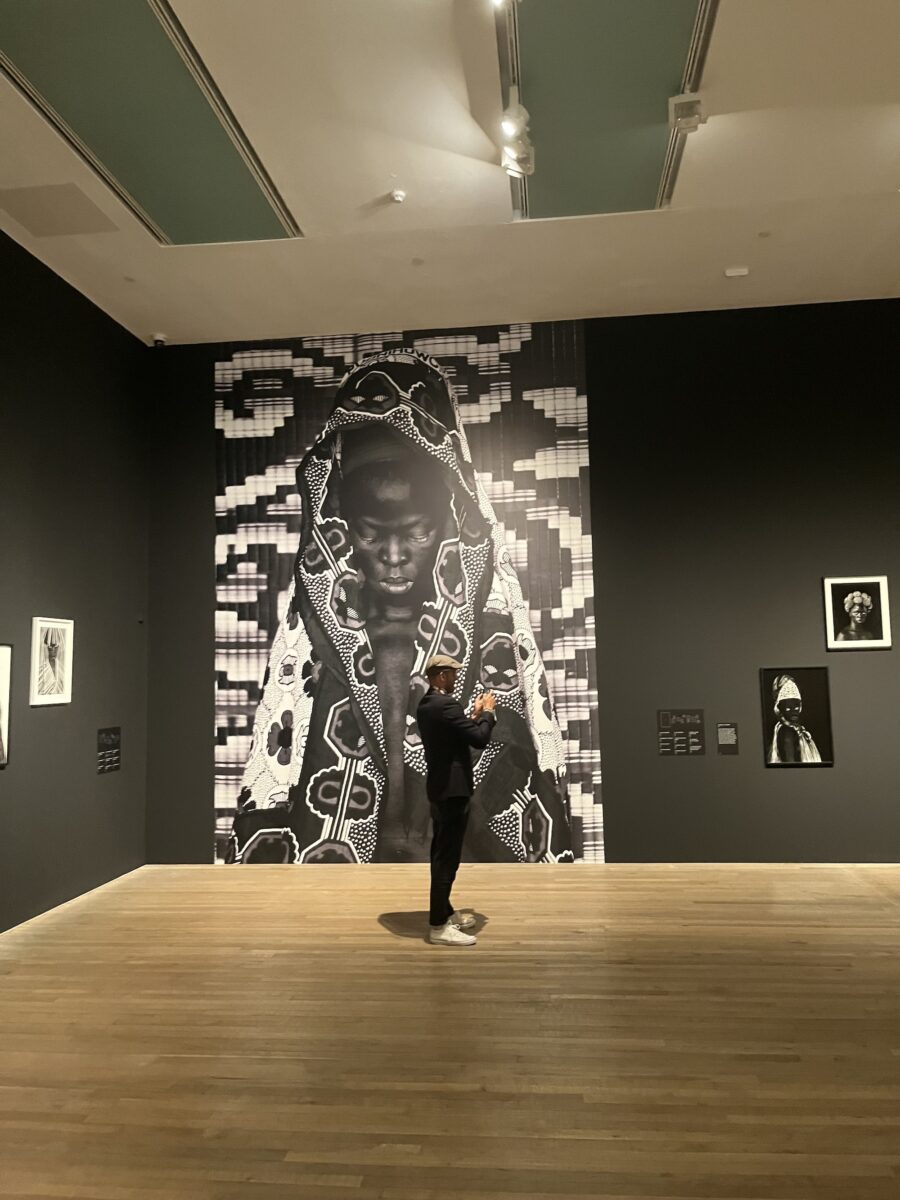
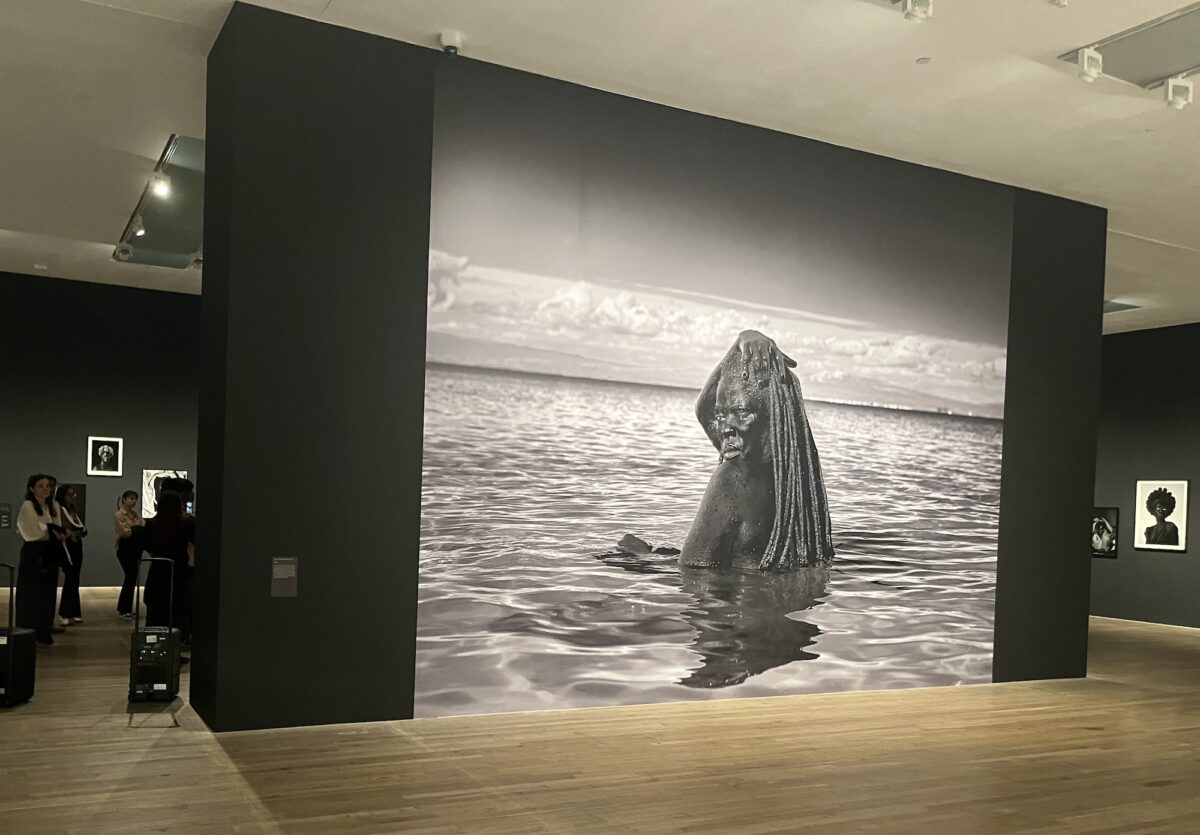
During the 1990s, South Africa underwent major social and political changes. While its 1996 post-apartheid constitution was the first in the world to outlaw discrimination based on sexual orientation, the LGBTQIA+ community remains a target for violence and prejudice to this day. In the early series Only Half the Picture, Muholi depicts the complexities of gender and sexuality for the queer community, including moments of love and intimacy as well intense images alluding to traumatic events in the lives of the participants. Muholi also began an ongoing visual archive of portraits, Faces and Phases, which celebrates and commemorates Black lesbians, transgender and gender non-conforming individuals. Each participant looks directly at the camera, challenging the viewer to hold their gaze, while individual testimonies capture their stories. The project has become a living archive of this community in South Africa and beyond.
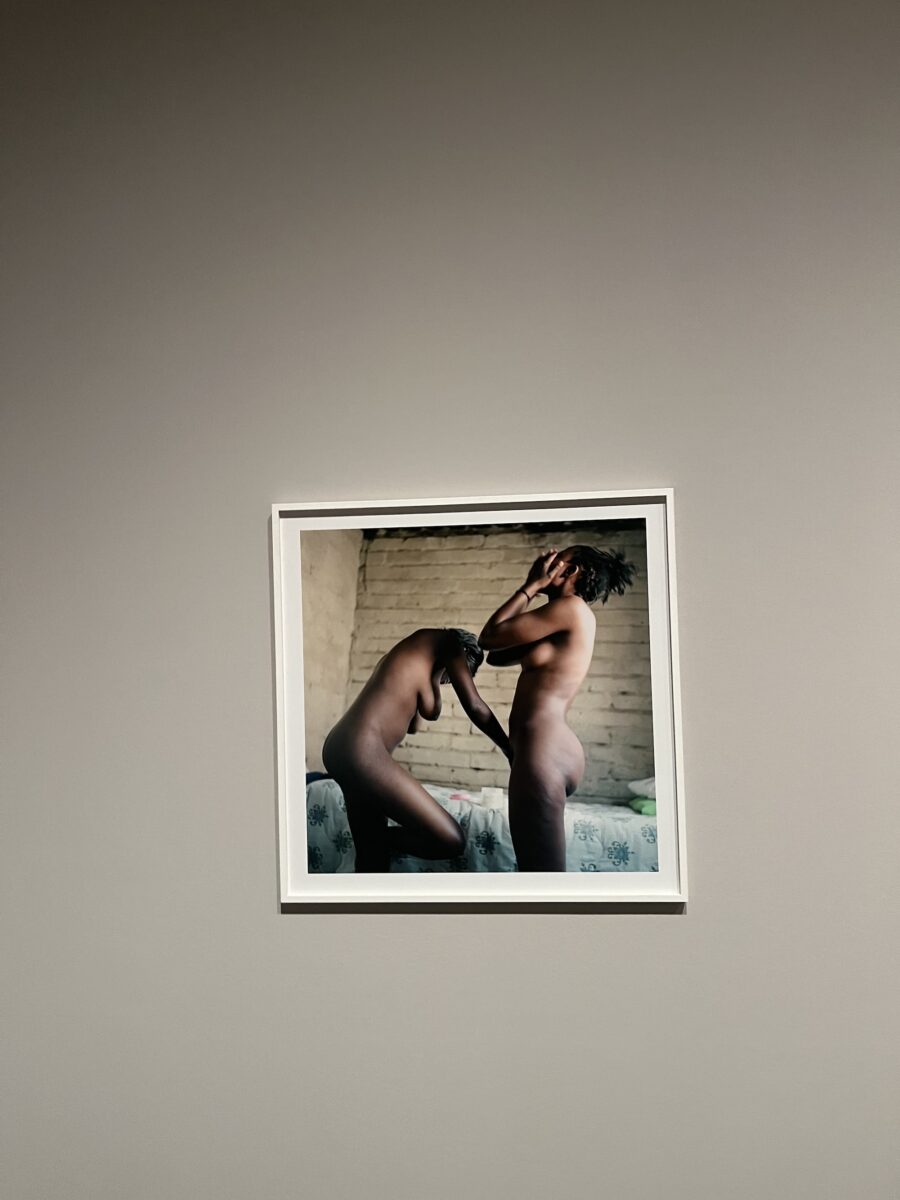
The exhibition includes several other key series of works, including Brave Beauties, which celebrates empowered non-binary people and trans women, and Being, a series of tender images of couples which challenge white supremacist and heteronormative stereotypes and taboos. Within these series, Muholi tells collective as well as individual stories. They challenge preconceived notions of deviance and victimhood, encourage viewers to address their own misconceptions, and create a shared sense of understanding and solidarity.
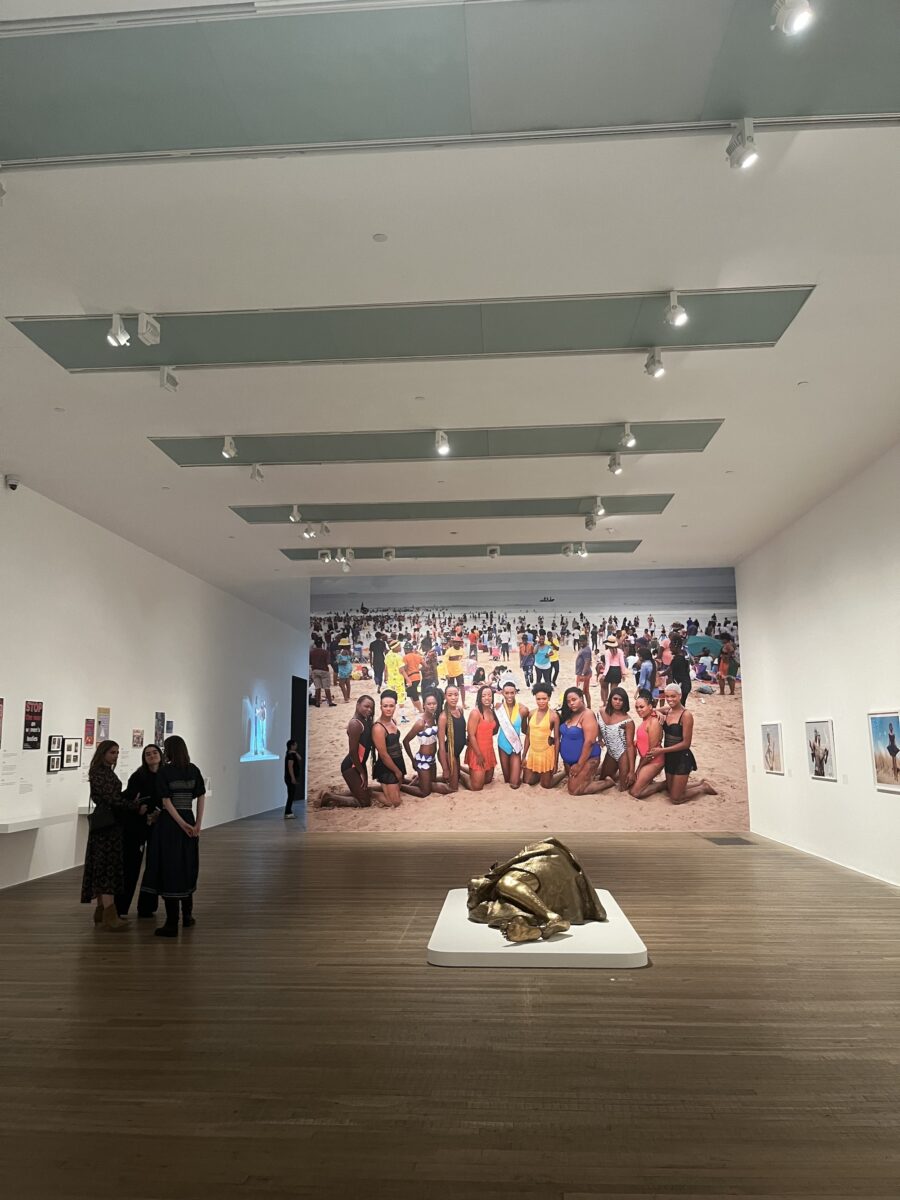
As well as images there are videos in SHARING STORIES first-hand testimonies of the experiences of Black LGBTQIA+ people are shown giving participants a platform to tell their stories in their own words. The people in the images come alive you see their stories told by them.
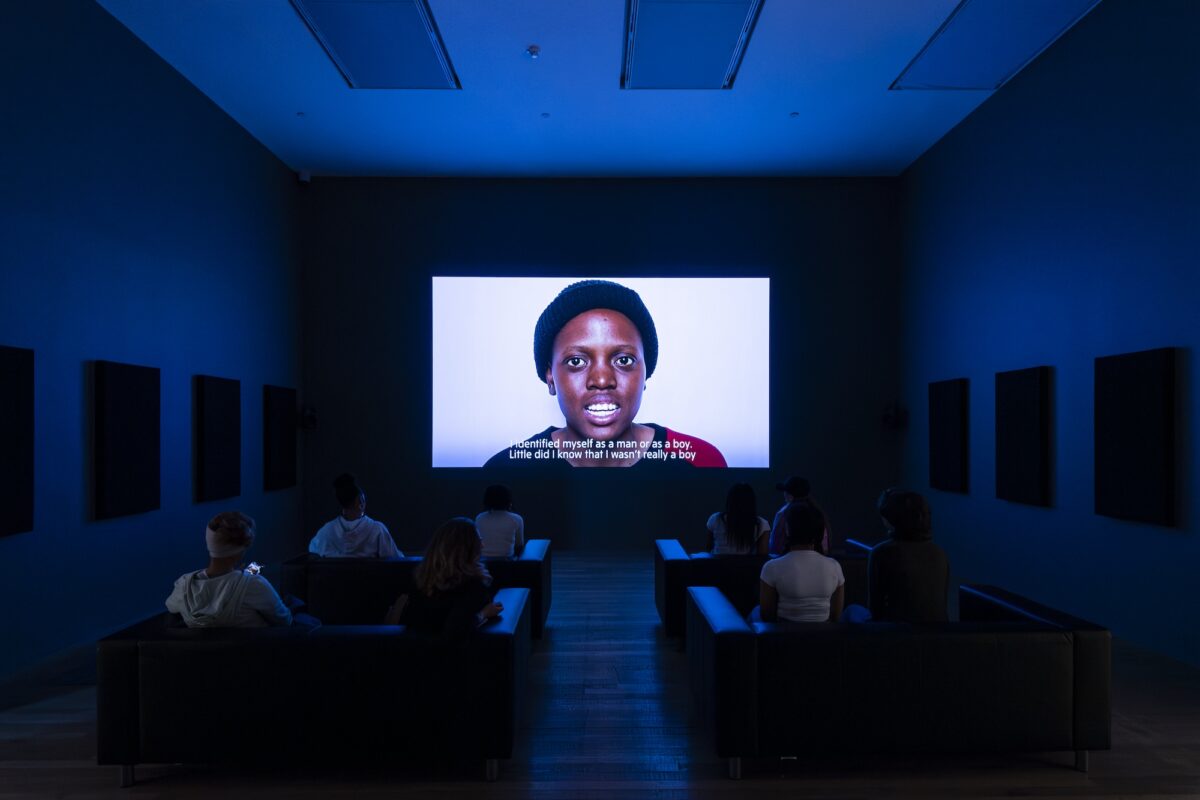
Each and every person in the photos has a story to tell but many of us come from spaces in which most black people never had that opportunity. If they had it at all, their voices were told by other people. Nobody can tell our story better than ourselves.
Zanele Muholi
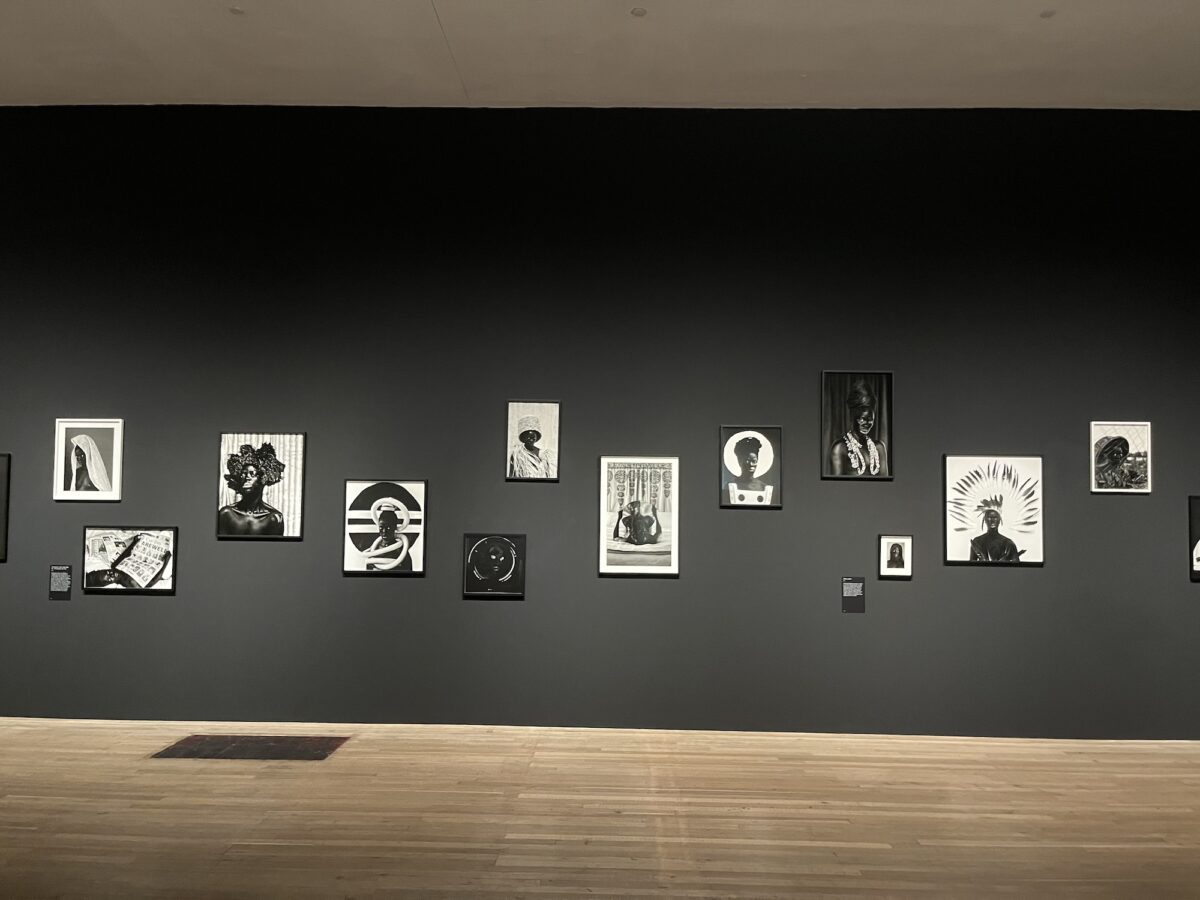
New works are presented in the UK for the first time from Muholi’s acclaimed series of dramatic self-portraits entitled Somnyama Ngonyama (‘Hail the Dark Lioness’ in isiZulu). Turning the camera on themself, the artist adopts different poses and characters to address issues of race and representation. From scouring pads and latex gloves to rubber tires and cable ties, everyday materials are transformed into politically loaded props. The resulting images explore themes of labour, racism, Eurocentrism and sexual politics, often commenting on events in South Africa’s history and Muholi’s experiences as a Black queer person traveling abroad. By enhancing the contrast in the photographs, Muholi also emphasises the darkness of their skin tone, owning their Blackness with pride and asserting its beauty. Since 2020, Muholi has expanded their portraiture practice into sculpture. Exploring intimacy, four monumental sculptures in the exhibition reckon with the relationship between public and private spheres. These larger than life-size works include three bronze depictions of the artist and a bronze representation of female sexual anatomy.
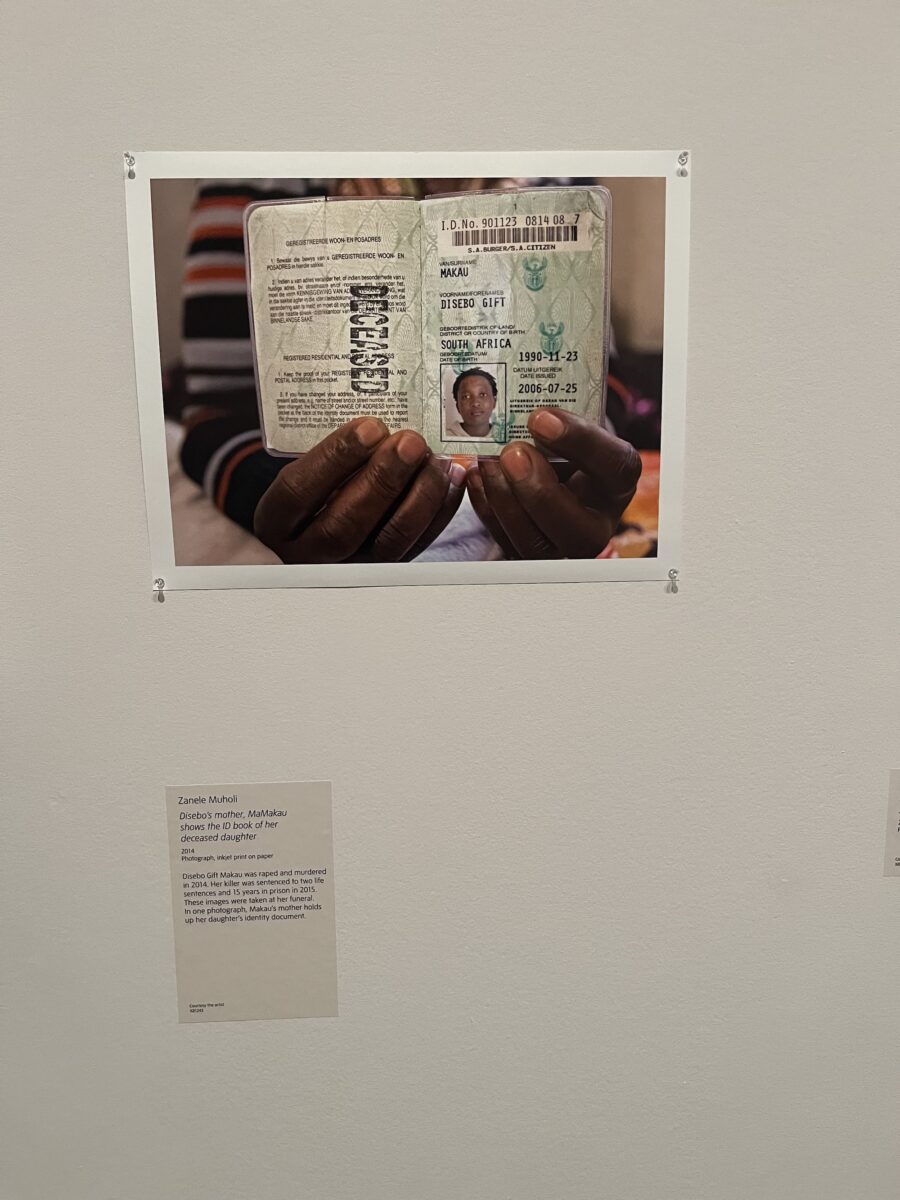
The final space focuses on collectivity, including images of protest and pride marches and of life changing events. This final section also draws attention to the Muholi Art Institute, Cape Town, established in 2021. The self-funded initiative offers residencies, studio and exhibition spaces for up-and-coming creatives from underserved backgrounds in South Africa. The exhibition is accompanied by a soundscape specially created by South African singer and award-winning musician Toya Delazy. Delazy has created unique responses to each section of the show to form a sonic tour for visitors to take through the exhibition.
Zanele Muholi, 6th June 2024 – 26th January 2025, Tate Modern
About the artist
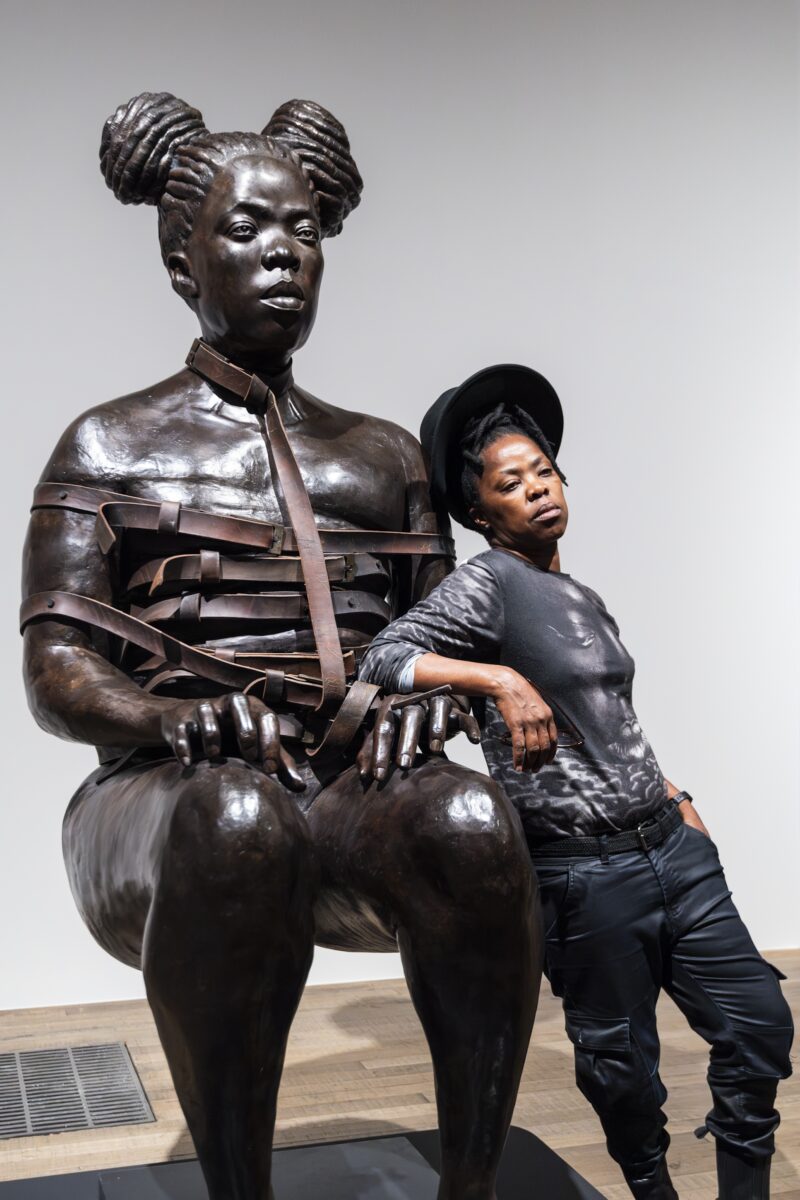
Muholi was born in Umlazi, Durban and lives in Cape Town. They studied Advanced Photography at the Market Photo Workshop in Newtown, Johannesburg, and in 2009 completed an MFA: Documentary Media at Ryerson University, Toronto. Muholi is an Honorary Professor at the University of the Arts/Hochschule für Künste Bremen, Doctor Honoris Causa in Liege University (2023). They have won numerous awards including the Spectrum International Prize for Photography (2020), the Lucie Prize for Humanitarian Photography (2019), the Rees Visionary Prize from Amref Health Africa (2019), a scholarship from the Royal Photographic Society, United Kingdom (2018), the title of Chevalier de l’Ordre des Arts et des Lettres (2017), the Mbokodo prize in the visual arts category (2017), the ICP Infinity prize for documentary and photojournalism (2016), the Africa’Sout! Courage and Creativity (2016); the Ryerson University Alumni Award (2016); the 2013 Carnegie International Outstanding Emerging Artist Award; the Prince Claus Prize (2013); the Index on Censorship – Freedom of Expression Art Prize (2013); the Casa Africa Prize for the best female photographer and the Blachère Foundation Prize at the African Photography Biennial Les Rencontres de Bamako (2009).
Muholi’s work has been exhibited at Documenta 13; the South African Pavilion at the 55th Venice Biennale; and the 29th São Paulo Biennale. Solo exhibitions have taken place at institutions including the Stedelijk Museum, Amsterdam; Autograph ABP, London: the Mead Art Museum, Amherst; Gallatin Galleries, New York; Open Eye Gallery, Liverpool; Brooklyn Museum, New York; Kulturhistorek Museum, Oslo; Einsteinhaus, Ulm; Schwules Museum, Berlin; and Casa Africa, Las Palmas. Muholi’s work is included in the collections of the Boston Museum of Fine Arts; the Brooklyn Museum; the Carnegie Museum of Art; the Guggenheim Museum; the Museum of Modern Art New York; the San Francisco Museum of Art; Tate; and the Victoria and Albert Museum among others. Muholi’s pronouns are they, them, their.
